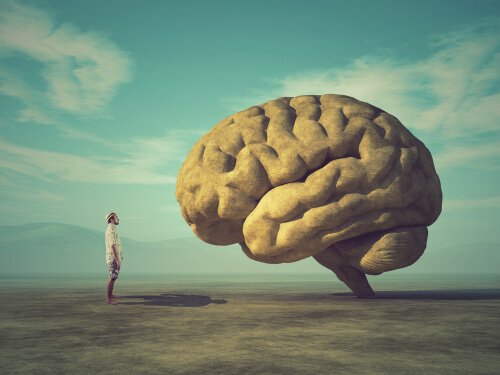The Neuroscience and Impact of Mistrust


Written and verified by the psychologist Valeria Sabater
The neuroscience of mistrust indicates that the brain innately allows humans to detect dangers and threatening stimuli. In fact, the mechanism evolved a little more in recent years. Certain phenomena, such as fake news, continue to strengthen the impact of mistrust.
But is it true that humans are increasingly distrustful? It’s definitely possible, although there are no benefits to it. It’s true that people must learn to walk with their feet well-planted on the ground and use their filters to separate truths from lies. However, nothing is as sad as a lack of confidence in the world. This is because it only leads to distancing from others. Mistrust doesn’t allow you to believe in your institutions and may also feed conspiracy theories.
In addition, the feeling of mistrust drains your psychological health. This is something very few people talk about. Even though the human brain has mechanisms to detect risks and threats, social connection is its actual priority. Human beings are gregarious creatures who need to group in order to survive, interact, laugh, cry, share, and build, etc.
The impact of mistrust is that it’s stressful and builds walls that deter connection. Human beings are capable of the best things when we work together. But only when we can combine synergies and common trust as a mechanism for advancement.
“Never trust the advice of a man in difficulties.”
-Aesop-

The neuroscience and impact of mistrust
Here are a few examples to understand what the neuroscience of mistrust is about. Who hasn’t fallen for a fake news trap at least once? Someone sends you a note and you read it. Since it’s surprising, you think it’s valid and forward it to others. Then, soon enough you find out it’s fake and it makes you feel naive. Thus, it really bothers you.
But if it happens to you a few more times, something changes. You become skeptical and less receptive. This is because, deep inside, you’ve changed.
Something similar happens in your relationships. When someone significant violates your trust, you may feel a sort of sting that goes beyond anger and annoyance. This is because what you’re really experiencing is emotional pain.
These two situations reveal that emotions vary at the cerebral level. Thus, negative and uncomfortable feelings don’t only impact your mood.
You can even change your behavior. This is because you become stricter when it comes to believing the news and no longer trust people, mainly to avoid further disappointments. Ok, that sounds fine but, what does the neuroscience of mistrust indicate?
Trust and mistrust impact different parts of the human brain
One could talk about there being a trusting brain and a suspicious brain. The first is located in the area of the prefrontal cortex, the area where processes such as higher thinking, executive functions such as attention, reflection, deduction, discernment, and empathy, among others, happen.
- Trust releases powerful neurochemicals, such as oxytocin, in the human brain. You wouldn’t be mistaken if you claimed that this dimension is one of the most transcendental for human beings. This is because trusting others is comforting.
- Similarly, the neuroscience of mistrust indicates that this state arises from a more primitive mechanism. When humans experience it, the amygdala and other regions of the limbic system activate.
- The brain experiences mistrust just like it does stress. It’s a state where you release cortisol (which reduces your critical and reflective sense) and empathy.
Mistrust makes you more cautious. However, in some cases, it also leads to an inability to reflect, reason, and see things under a wider perspective will lead you to be inflexible and even display aggressive behavior in order to block the object of your mistrust.

Dimensions one must attend to in the “culture of mistrust”
You may, in fact, live in the midst of a culture of mistrust and find it difficult to believe in everything you read and hear. As we stated at the beginning of this article, this kind of perception isn’t only sad but highly negative for yourself and for society in general.
For this reason, the neuroscience of mistrust indicates that you must try to reverse it. This is because there’s a big price to pay for experiencing this sensation as the brain experiences it as stress. Not being able to trust those around you, the daily news, your leaders, and public institutions plunges you into a state of constant uncertainty and discomfort. You’re always on the defensive.
Reflections on the impact of mistrust
- You should only distrust a specific situation or person. Mainly those you’ve had a problem with or who’ve already disappointed or deceived you. Don’t generalize.
- You can’t go through life with an all-or-nothing approach. Neither people nor society are perfect, everyone makes mistakes. Also, the fact that someone failed you once doesn’t mean it’s their M.O.
- If you lack trust, then others won’t trust you back. Thus, trusting should be your most genuine attitude toward others.
- Don’t succumb to peer pressure. Often, people around you encourage you to distrust, close your ears, your eyes, and your hearts to many of the things and people around you. Thus, think for yourself.
To conclude, there’s nothing more important in times of difficulty that to trust one another. It’s as vital as oxygen for human beings. Only you can be trusting. Dare to give it another chance!
This text is provided for informational purposes only and does not replace consultation with a professional. If in doubt, consult your specialist.








